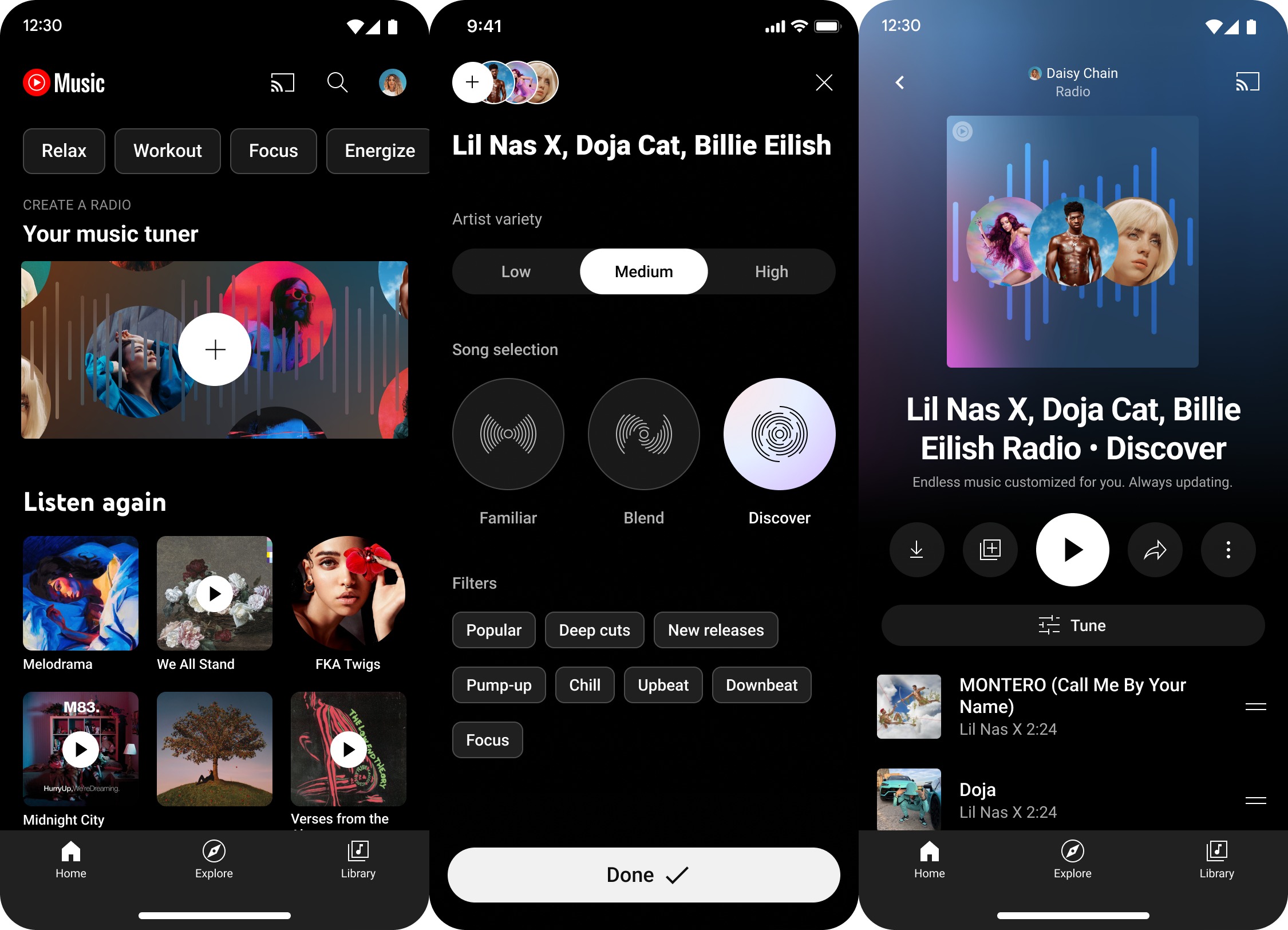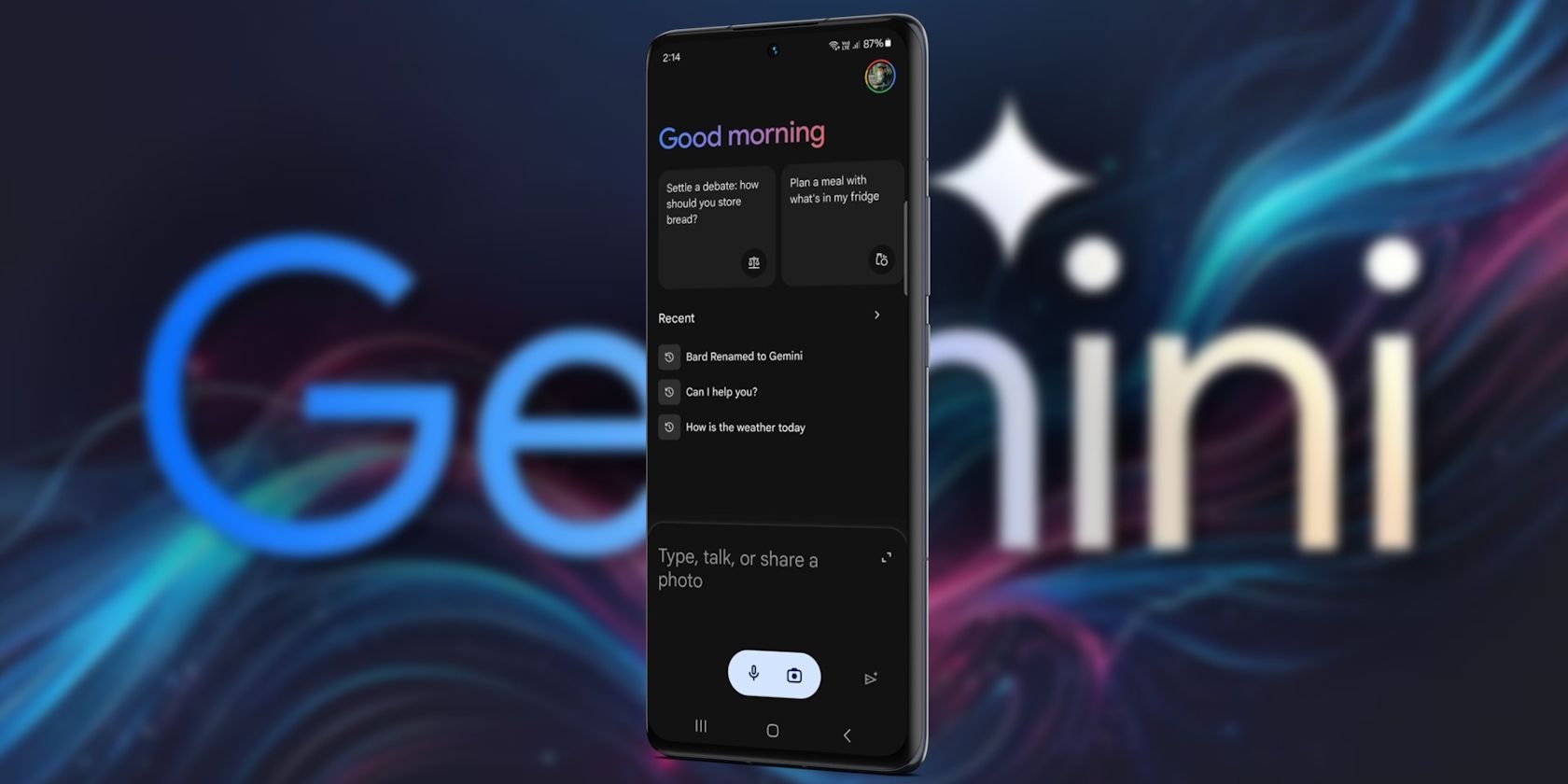In an era where multitasking and seamless integration are the gold standards of technology, Google’s Gemini AI chatbot is setting a new benchmark in the world of music streaming. The recent update to Gemini has brought an exciting and highly anticipated feature that makes your music listening experience smoother and more effortless than ever before: the ability to play songs directly from Spotify, without the need for switching between apps. This groundbreaking integration could significantly change the way we interact with our devices and listen to music, adding more convenience and voice control to our everyday lives.
Here's ads banner inside a post

A Seamless Music Experience
For those familiar with Google Gemini, the AI chatbot has been around for a while, offering users a smart assistant that can handle a variety of tasks—from answering questions to setting reminders and even managing some of your smart home devices. However, its music capabilities had remained somewhat limited. That is, until now.

Here's ads banner inside a post
With this latest update, Gemini has leveled up by allowing users to control Spotify directly through its interface. No more fumbling with your phone to skip tracks or open a new app—Gemini can now take care of all your music-related needs. Whether you’re looking to play your favorite playlist, discover new tracks, or even search for a song based on a snippet of lyrics you remember, Gemini can do it all, without interrupting your conversation or requiring any additional app-switching.

This feature offers a more hands-free, voice-controlled experience that is bound to attract Spotify enthusiasts who are looking for more convenient ways to enjoy their music. Users can simply ask Gemini to play their favorite songs or playlists, or even request music by genre, artist, or mood, all without leaving the Gemini interface. It’s truly a game-changer for anyone who prefers not to waste time switching between apps when they just want to hear their favorite tunes.
Here's ads banner inside a post
How It Works: Simple Setup and Controls
Setting up the Spotify extension within Gemini is a straightforward process. If you already have a Spotify account linked to your Google account, you’re good to go. Simply ask Gemini to perform an action, like “play some jazz music” or “search for the new Taylor Swift song,” and it will handle the rest. If your accounts aren’t linked yet, Gemini will walk you through the simple steps to get everything connected during the initial setup. Once connected, you’re all set to enjoy an integrated music experience that requires minimal effort.

The beauty of this integration lies in its ease of use. Imagine not having to open Spotify, search for a song, and then switch back to the Gemini interface—everything is done with a simple voice command. Want to discover a new track? Just ask Gemini to find a song based on your favorite lyrics. Searching for the perfect playlist for a workout or a chill evening? Gemini has you covered. This setup eliminates the need for app-switching and allows you to stay focused on what matters most: enjoying your music.
However, it’s worth noting that this integration currently comes with a few limitations. The feature is only available in English on the main Gemini app, meaning that users in other languages will have to wait for future updates. Additionally, while basic actions like browsing playlists are available to all users—regardless of whether they have a Spotify Premium account—playing specific songs does require a Premium subscription. This could be a small hurdle for those who don’t want to pay for the extra features, but for most users, the ability to play music directly through Gemini will still offer a vast improvement to the way they interact with Spotify.

Voice Controls: A Hands-Free Future
One of the most appealing aspects of the Gemini-Spotify integration is its hands-free nature. Voice controls have become an increasingly important part of how we interact with technology, and this new update takes it to the next level. While many of us are accustomed to using voice assistants like Siri, Alexa, or Google Assistant to play music, Gemini’s integration with Spotify allows for a much more cohesive and seamless experience. There’s no need to jump between multiple apps or interfaces, and you don’t even need to unlock your phone to make the request. Just ask Gemini to play your favorite song or suggest a playlist, and it will respond immediately.

This new feature is especially valuable for users who are always on the go—whether you’re at the gym, cooking dinner, or simply relaxing at home. With Gemini’s voice control, you can continue with your day while your favorite songs play in the background. For those who rely heavily on voice assistants in their daily routines, this integration is a welcome addition that makes life just a little bit easier.
A Bold Step for Google’s AI Chatbot
This move marks Google’s second major step toward offering a more unified and voice-controlled user experience. Prior to the Spotify integration, Gemini had already extended similar functionality to YouTube Music, which allowed users to control playback, discover new songs, and browse playlists using voice commands. However, YouTube Music has a more niche audience compared to Spotify, which boasts a much larger user base, making the Gemini-Spotify integration even more significant.

By bringing Spotify into the fold, Google is widening Gemini’s appeal and positioning it as a more versatile assistant for music lovers. While YouTube Music remains a strong option for those invested in Google’s ecosystem, Spotify’s broader popularity means that this update will reach a much larger audience. For millions of users worldwide, this new functionality makes Gemini a more comprehensive and valuable tool for managing all aspects of their digital life, not just their music.
The Future of Music and AI Integration
This update is a significant leap forward in the ongoing evolution of artificial intelligence and music streaming. As voice assistants become more intelligent and integrated into our daily lives, we can expect to see even more seamless interactions between AI systems like Gemini and popular services like Spotify.
As it stands, Google has been steadily working to improve the user experience across its entire ecosystem, and this update is just one example of how they are doing so. The company’s push for a more unified, voice-controlled experience is an exciting development that could have major implications for how we interact with music, entertainment, and technology in general. The Gemini-Spotify integration is just the beginning, and it’s clear that AI-powered music assistants will only become more sophisticated as they learn and adapt to user preferences.

In the coming months, we can expect more features, enhancements, and possibly even broader integration with other music services, as Google seeks to make Gemini the go-to assistant for all your entertainment needs. Whether you’re a casual music listener or a hardcore Spotify fan, Gemini’s new capabilities will surely make your listening experience smoother and more enjoyable than ever before.
Final Thoughts
Google’s Gemini AI chatbot’s ability to play Spotify songs directly from within its interface is an exciting and welcome upgrade. The seamless integration of Spotify into Gemini’s ecosystem offers users a hands-free, voice-controlled music experience that eliminates the need for constant app-switching. Although the feature is still in its early stages, it has the potential to change the way we listen to music on our Android devices. With a simple setup process and easy-to-use controls, Gemini is making music discovery and playback more convenient than ever before.

As voice control becomes a more dominant feature of our digital lives, Gemini’s Spotify integration is just a taste of what’s to come. It’s clear that the future of music and AI interaction is bright, and this update positions Google’s Gemini as a powerful tool for users who want to streamline their entertainment experience. With more features likely on the horizon, the possibilities for voice-controlled music are endless.

